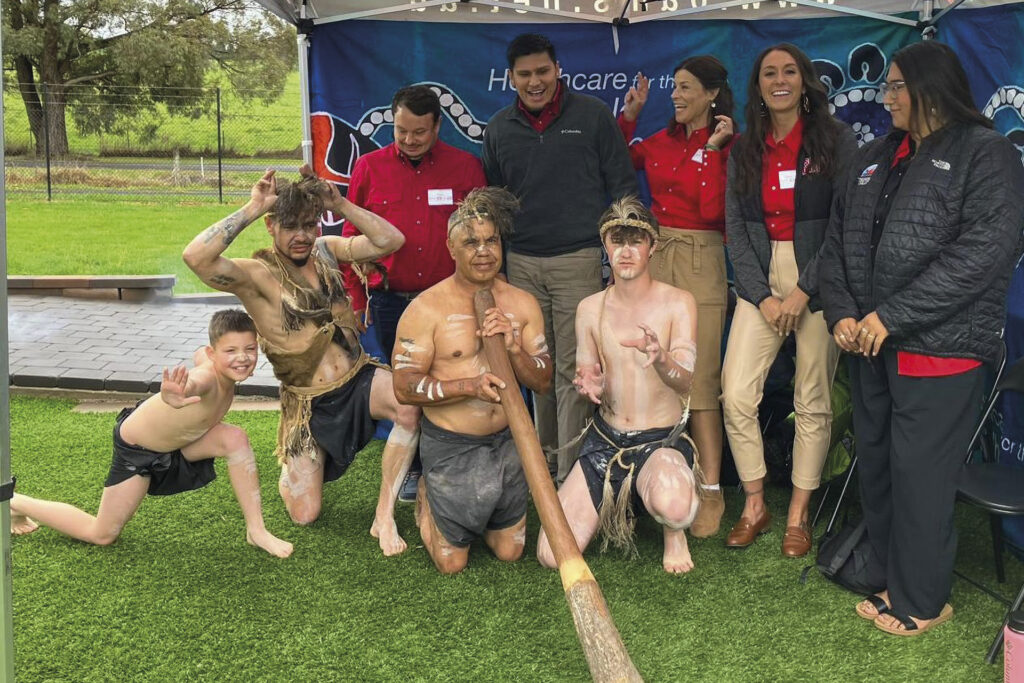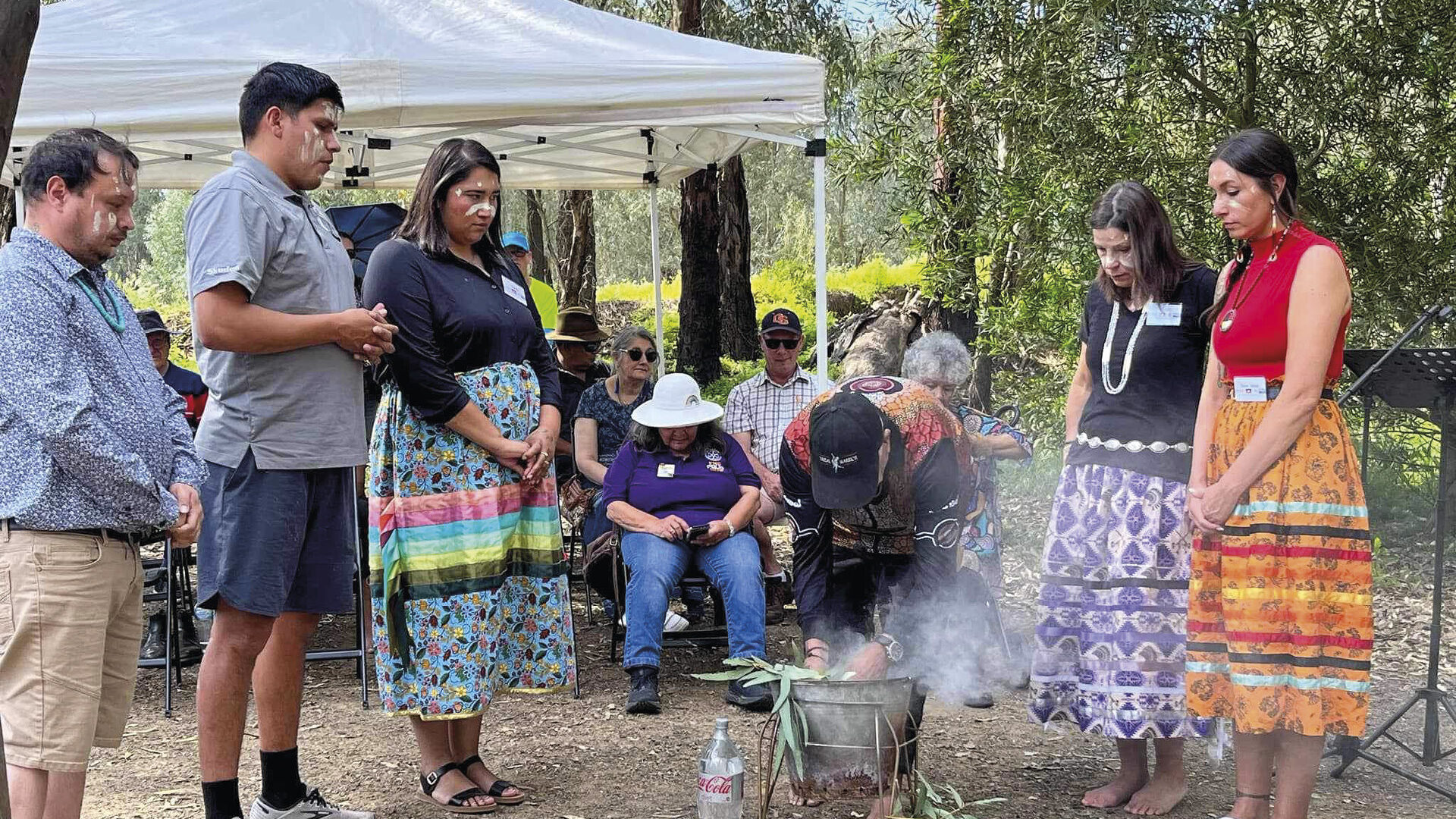An Indigenous Group Study Exchange from South Dakota, US, to south-western NSW has highlighted the shared experiences of both country’s First Nations Peoples.
A group of Native Americans from the Sioux Nation spent time travelling through south-western NSW on a Group Study Exchange from October 15 to November 2.
Kibbe Brown, of the Rotary Club of Rapid City Rushmore, US, and team leader of the Oceti Sakowan group of Lakota Nations people from South Dakota, said Australian Aborigines and Native Americans share significant parallels.
“These include their deep connection to the land, traditional hunter-gatherer lifestyles, the experience of colonisation and displacement by European settlers, disruption of their cultures through assimilation policies, and ongoing struggles for land rights and social justice,” Kibbe explained.
“These are often marked by high rates of poverty and health disparities within their communities. Both groups also have diverse languages and cultural practices across different regions.”

PICTURED: A warm Wiradjuri welcome.
The team toured outback NSW, visiting Orange, Condobolin and Wagga Wagga, before arriving at Mittagong for the Rotary District 9705 Conference, which includes most of south-western NSW and the ACT.
Last year, five Wiradjuri from these areas – team leader Lynette Bullen, of the Rotary Club of Orange Daybreak, Eddie Whan from Wagga Wagga, Tennille Dunn from Condobolin, Mick Newman from Orange and Ethan Williams – visited seven of the nine reservations across South Dakota.
Rotary Group Study Exchanges have been happening for decades, but this time the emphasis was on the Indigenous delegates understanding First Nations issues, enterprise, community support, arts and education, health frameworks, challenges and developments.
“We had the most incredible time,” said Kibbe. “We were so warmly welcomed by our Wiradjuri aunties and uncles and in each place we shared and learned.
“It was a very robust agenda and we returned home with best practice ideas in the areas of health, education, business and culture.”
The team spoke at the Rotary District 9705 Conference in the Southern Highlands on October 26.
It was poignant timing as it coincided with US President Joe Biden’s formal apology to the Native American community for a 150-year-old Indian boarding school policy.
The US Federal Government established Indian boarding schools from 1819 until the 1970s that forcibly removed children from their homes and families.
Biden said the policy aimed to culturally assimilate Indigenous children and called it a “sin on our soul”. He apologised for the “blot on American history”.
MAIN PICTURE: Members of the Group Study Exchange were treated to a traditional Indigenous smoking ceremony.
